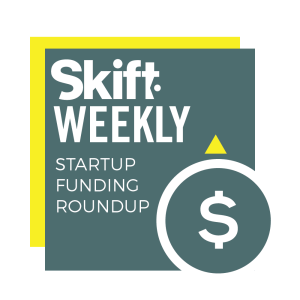Getaround Raises $140 Million for Car Sharing: Travel Startup Funding This Week

Skift Take

Travel Startup Funding This Week
Each week we round up travel startups that have recently received or announced funding. Please email Travel Tech Reporter Justin Dawes at jd@skift.com if you have funding news.This week, travel startups announced more than $193 million in venture equity funding.
>>Casai, a short-term rental brand offering travelers professionalized stays with hotel-style amenities in Mexico, has raised $23 million in equity funding. Andreessen Horowitz led the round. Kaszek Ventures and Global Founders Capital also took part. Casai said it had also accessed as much as $25 million in debt financing, bringing the funding total to $48 million. See Skift's story.
>>Getaround, a car sharing service, has raised $140 million in a Series E deal.
PeopleFund led the round. The Silicon Valley-based startup has disclosed about $600 million in funding. The SoftBank Vision fund led a $300 million Series D round in 2018, for example.
Getaround is in more than 100 cities in the U.S. and Europe. In the past month, monthly revenue has doubled versus a year ago. Companies that have overlapping or adjacent models include Turo and Blablacar.
>>Kasa, a short-term rental brand, has raised a $30 million Series B funding round led by Ribbit Capital.
The round follows a $20 million Series A round led by FirstMark Capital and raised less than a year ago.
The San Francisco-based startup aims to convert underutilized real estate into lodging with hotel-like amenities. It has cut deals to manage units owned by developers in 35 markets across 15 U.S. states.
"In defining a new, software-driven way to deliver high-quality hospitality, we see Kasa doing to hotels what Amazon Web Services (AWS) did to on-premise servers," said Nick Shalek, general partner at Ribbit Capital.
Skift Cheat Sheet:
We define a startup as a company formed to test and build a repeatable and scalable business model. Few companies meet that definition. The rare ones that do often attract venture capital. Their funding rounds come in waves.
Seed capital is money used to start a business, often led by angel investors and friends or family.
Series A financing is typically drawn from venture capitalists. The round aims to help a startup's founders make sure that their product is something that customers truly want to buy.
Series B financing is mainly about venture capitalist firms helping a company grow faster. These fundraising rounds can assist in recruiting skilled workers and developing cost-effective marketing.
Series C financing is ordinarily about helping a company expand, such as through acquisitions. In addition to VCs, hedge funds, investment banks, and private equity firms often participate.
Series D, E and beyond These mainly mature businesses and the funding round may help a company prepare to go public or be acquired. A variety of types of private investors might participate.





